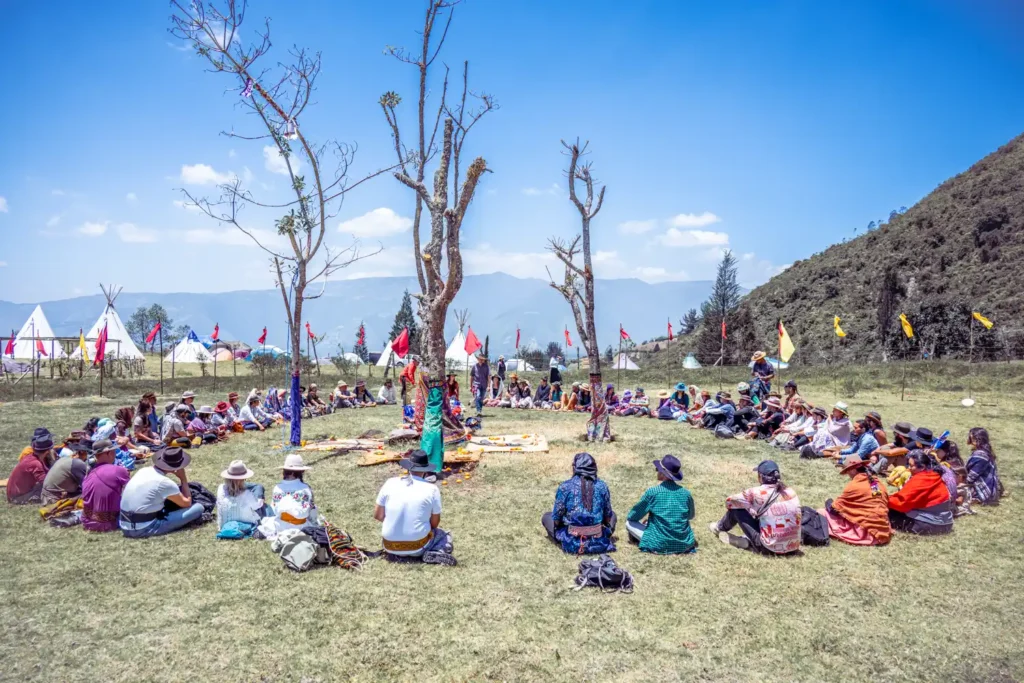Statement of Good Practice and Ethics

Our ethical principles are deeply rooted in promoting a culture of good living and reverence for nature. We are committed to using our knowledge for individual and community growth, preserving and sharing ancestral teachings and practices.
Aware of the potential impact of our actions, we ensure that our rituals and ceremonies are always geared towards wellbeing, without causing harm or obtaining undue advantages. Church members, in their roles as Yachay, Kurakas, and apprentices, are accountable for their actions and the foreseeable results. Defending professionalism, dignity, and transparency, they use communication as a tool to build bridges, foster respect and promote constructive dialogue, while explicitly rejecting any form of communication that creates division or discrimination.
General principles:
Cultura del Buen Vivir
The Yachay, Kurakas, and apprentices belonging to the Sumak Kawsay church are committed to promoting a culture of health, favoring healthy lifestyles both for individuals and for the environment and everything that surrounds them.
Education
All those who work on behalf of the Sumak Kawsay Church are committed to offering their knowledge at the service of the growth of human beings as individuals and as a community. The entire organism of the church, its different parts, and its various functions work together to share the ancient teachings and knowledge that the church keeps. Our commitment to the education and professional training of apprentices, students, and all those who are connected to the organization is unwavering and alive. All tools related to ecclesiastical cultural and ceremonial activities based on the application of principles, knowledge, and models of Sumak Kawsay are specific to professionals authorized by the Board of Directors of the Church. The teaching of these tools and techniques is reserved for students and apprentices.
Action
We are aware that our ceremonies and rituals can influence the lives of the people who participate in them, therefore we promise to be attentive to the factors that influence the social and personal lives of the participants so that our actions do not have inappropriate ends, and that the trust generated is not used for purposes other than health and well-being.
Church professionals agree not to harm those with whom they deal professionally, and not to use their role, position, or professional tools to gain undue advantage. Yachay, Kurakas, and apprentices are responsible for their actions and their foreseeable consequences.
Communication
Yachay, Kurakas, and apprentices are committed to representing the church with professionalism, dignity, and transparency. Therefore, their communications are based on veracity, respect, and transparency, both in verbal expressions and through the media, computers, and social networks. All forms of communication are developed in search of constructive dialogue. The church rejects and denounces all forms of communication that cause distancing, destruction of relationships, and all forms of discrimination.

Using this link you can find the full version of our code of ethics.
If you have any questions, please do not hesitate to contact us.

